Exfoliating gloves can serve as an effective tool for physical exfoliation. Typically, you add your chosen cleanser or product to the gloves and gently work it into the skin. That said, this form of exfoliation isn’t ideal for every skin type.

Exfoliation removes dead skin cells and impurities from the skin’s surface. There are several ways to exfoliate at home, including physical (mechanical) and chemical methods.
Mechanical exfoliation relies on a tool or texture to physically scrub away dead skin and debris. Chemical exfoliation, by contrast, uses ingredients like alpha and beta hydroxy acids to dissolve dead cells without the need for rubbing or vigorous motion.
Continue reading to learn how to use exfoliating gloves properly and to determine whether mechanical or chemical exfoliation is a better match for your skin type or condition.
How to use exfoliating gloves
Using exfoliating gloves involves a few straightforward steps:
- Wet the gloves: Run your exfoliating gloves under warm water, then dispense your chosen product. This could be a body wash, gel, or cleanser depending on the area you’re treating. For facial use, opt for a mild cleanser or facial wash to avoid irritation.
- Gently massage: Massage your skin with the gloves, applying light pressure in slow, circular motions. Avoid harsh scrubbing or up-and-down sawing movements, particularly on sensitive regions like the chest or inner thighs.
- Rinse: After massaging, rinse the product off with lukewarm water—not hot—and lightly pat your skin dry with a towel. Avoid vigorous rubbing, which can be abrasive to skin freshly exfoliated.
- Moisturize: Once dry, follow with a moisturizer to lock in hydration and protect the skin barrier.
Allow time between sessions for your skin to recover to prevent over-exfoliation. Excessive exfoliation can lead to irritation and harm the skin barrier.
What are the benefits and disadvantages of exfoliating gloves?
Exfoliation can yield smoother, more radiant skin and may help decrease ingrown hairs. People with thicker or oilier skin often find mechanical exfoliation helpful in sloughing away dead cells.
Mechanical exfoliation typically involves a separate implement to remove dead skin and impurities. Examples include:
- brush
- washcloth
- scrub
- sponge
- exfoliating gloves
However, this approach isn’t suitable for everyone. Potential drawbacks of exfoliating gloves and mechanical exfoliation include:
- possible skin irritation
- compromising the skin barrier
- worsening symptoms of preexisting conditions like acne or rosacea
- needing to replace gloves often, since they can harbor bacteria if not cleaned properly
Who should avoid it
You may want to steer clear of mechanical exfoliation if you have any of the following:
- acne
- acne-prone skin
- rosacea
- dry skin
- sensitive skin
- eczema
- a darker skin tone
- damaged skin
- burns, bites, or open cuts
For some individuals with darker complexions, aggressive exfoliation can lead to hyperpigmentation. If your skin is dry or sensitive, consider gentler formulations and avoid ingredients like retinol or benzoyl peroxide that may be too harsh.
Milder chemical exfoliation can be a preferable alternative in these scenarios. A 2021 study found that users of low concentrations of alpha and polyhydroxy acids reported smoother skin texture, a refreshed feel, and a light exfoliation effect.
Takeaway
Exfoliating gloves are a handy option for physical exfoliation. They’re simple to use: wet them, add product, and gently massage your skin.
Exfoliation can improve skin brightness and texture, but choosing the right method depends on your skin type and any existing conditions.
If you’re unsure which approach suits you best, consult a dermatologist for personalized guidance on caring for your skin type.

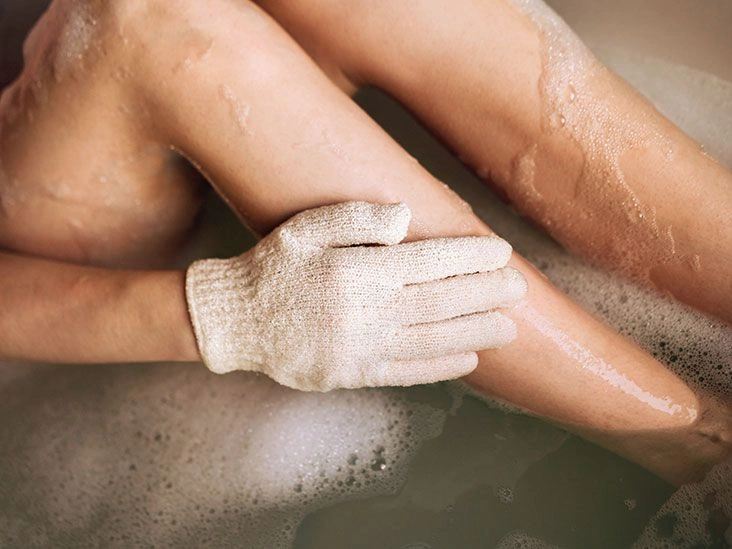
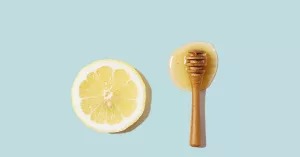
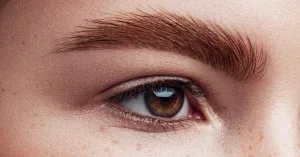





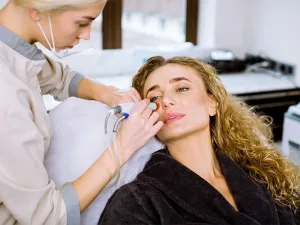

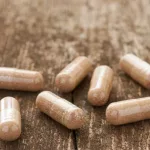







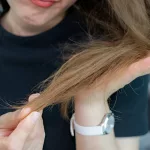

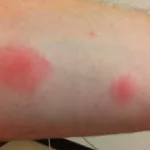
Leave a Reply
You must be logged in to post a comment.